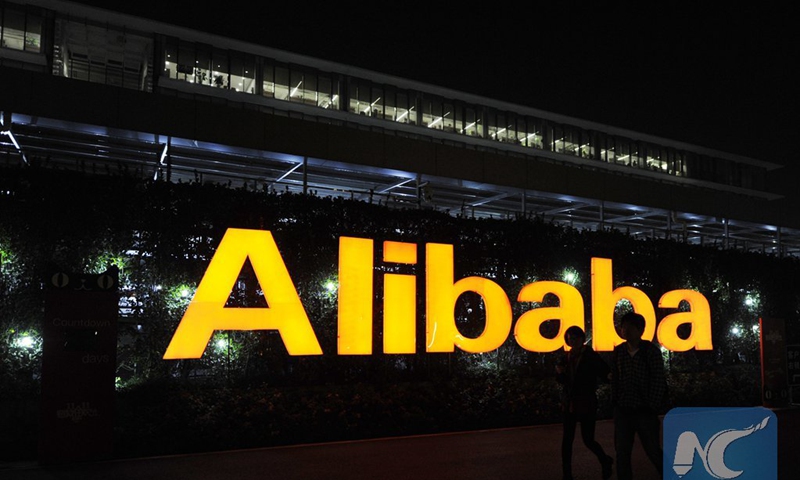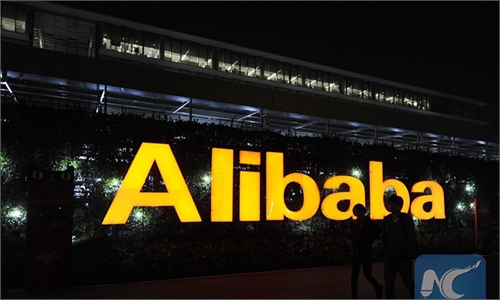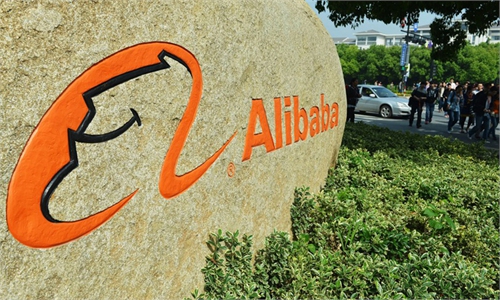Specific mechanism needed to support female employees in workplace over sexual harassment following Alibaba case: lawyer
Specific mechanism needed to support women in workplace over harassment: lawyer

Alibaba
Chinese e-commerce giant Alibaba Group said early Monday that it had fired a manager suspected of raping his female subordinate, and two executives involved in the case have resigned, a response that came more than 10 days after the incident that rocked the internet industry and set off a fierce backlash from netizens since the weekend.
The manager - Wang Chengwen - who came from Alibaba's City Retail unit, which offers grocery deliveries from local supermarkets, acknowledged that he had "excessive intimate" conduct with the female staffer when she was drunk, which severely violated the company's rules.
Such behavior means Wang should be fired and never be re-hired, according to a memo that Alibaba CEO Daniel Zhang posted on the company's intranet.
As for whether the manager committed rape or indecency that violated the law will be determined by law enforcement, the memo said.
Jinan Hualian Supermarket said on Monday to fire an employee surnamed Zhang, who is also involved in the case over "misconduct and damage to the firm's public image."
Police in Jinan, capital of East China's Shandong Province, where the incident happened, said that they had launched a probe into the sexual misconduct case. No further information was disclosed as of press time.
Li Yonghe, head of the City Retail unit, who worked as Zhang's assistant, resigned alongside his human resources chief for mishandling the incident, according to the memo. Moreover, Alibaba's chief human resources officer Tong Wenhong received an internal demerit as a penalty.
"During the whole process of handling the case, the human resources team lacked caring, attention and empathy toward staff. Meanwhile, the company did not suspend the relevant staffers from work when involved in a suspected criminal case, due to the lack of a crisis response system and severe misjudgment," read the memo.
The female employee reported to her upper management on August 2 but she received no meaningful response. Over the weekend, the incident sparked outrage across the opinion spectrum, with netizens and some opinion leaders lashing out at the working culture of the company.
The woman posted an 11-page PDF document on Alibaba's intranet, in which she alleged that on July 27, her supervisor and a client sexually assaulted her while on a business trip in Jinan.
Given that the incident has rocked the internet industry and sparked criticism from social media, experts and analysts said that the memo came too late and showed no humanity.
Ge Jia, an independent internet industry analyst, told the Global Times on Monday that "as an internet giant famed for its management system, how could it lack a complaint handling procedure that offers a quick response?"
This situation obviously reflected problems in its organizational and procedural management, Ge said.
For a big firm like Alibaba that has been treated as one of the internet industry's benchmarks, it should not start to deal with the incident seriously so late, even after the situation was exposed to the public and the woman who claimed to be a victim seemed to have been pushed into a corner, opting to hand out flyers in the company's canteen, said Ge.
In an attempt to be noticed, the woman posted her claims to the company's group chat and even took a loudspeaker and flyers to the canteen of Alibaba in Hangzhou, East China's Zhejiang Province, where it is based, according to her posts.
Alibaba will show a zero-tolerance attitude toward sexual harassment, said the memo. In addition, it will invite external experts and employee representatives to jointly formulate a "code of action against sexual harassment."
"I think such a remedy is more like making an effort at the last moment. True protection and respect for women in the workplace is a fundamental issue of conduct and it should be reflected everywhere. It should not be an enforced thing or lip service," said Ge.
Liu Dingding, a Beijing-based tech analyst, told the Global Times on Monday that the fallout did mean something big for Alibaba, as it will have to adjust, especially regarding its core corporate values. "It should put staff first, instead of its customers," said Liu.
The topic "infringement of female employees in Alibaba" continued to ferment on Chinese social media, triggering netizens to discuss women in the workplace amid the "ugly" wine table culture, which is still a "hidden rule" in professional and social interactions during business talks in China. It's shocking that even the top internet companies in China cannot get rid of this aspect of the culture.
Apart from the Alibaba case, a former employee of Chinese ride-hailing giant Didi Chuxing on Monday posted online her experience of suffering indecency last year amid a wine table with customers. She later reported the incident to local police but it was not recorded
The current evidence cannot prove indecency, the local procuratorate said in reply, thepaper.cn reported on Monday.
Xu Hao, a lawyer at the Beijing-based Jingshi Law Firm, told the Global Times on Monday that the current problem in sexual harassment cases is that it is difficult to obtain evidence and it is hard to specifically define "sexual harassment."
He suggested that victims should keep as much complete evidence as possible.
The lawyer also advised relevant organizations like workers' unions or the All China Women's Federation to establish specific mechanisms in an aim to help and support women who suffer sexual problems in the workplace.
The Hangzhou branch of the All China Women's Federation has noted the suspected rape case of Alibaba and is studying relevant measures with the federation at the provincial level, the Beijing Youth reported on Monday.


